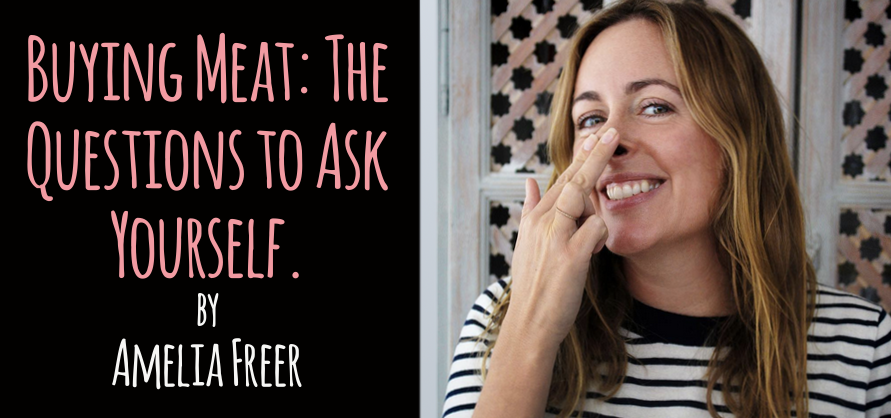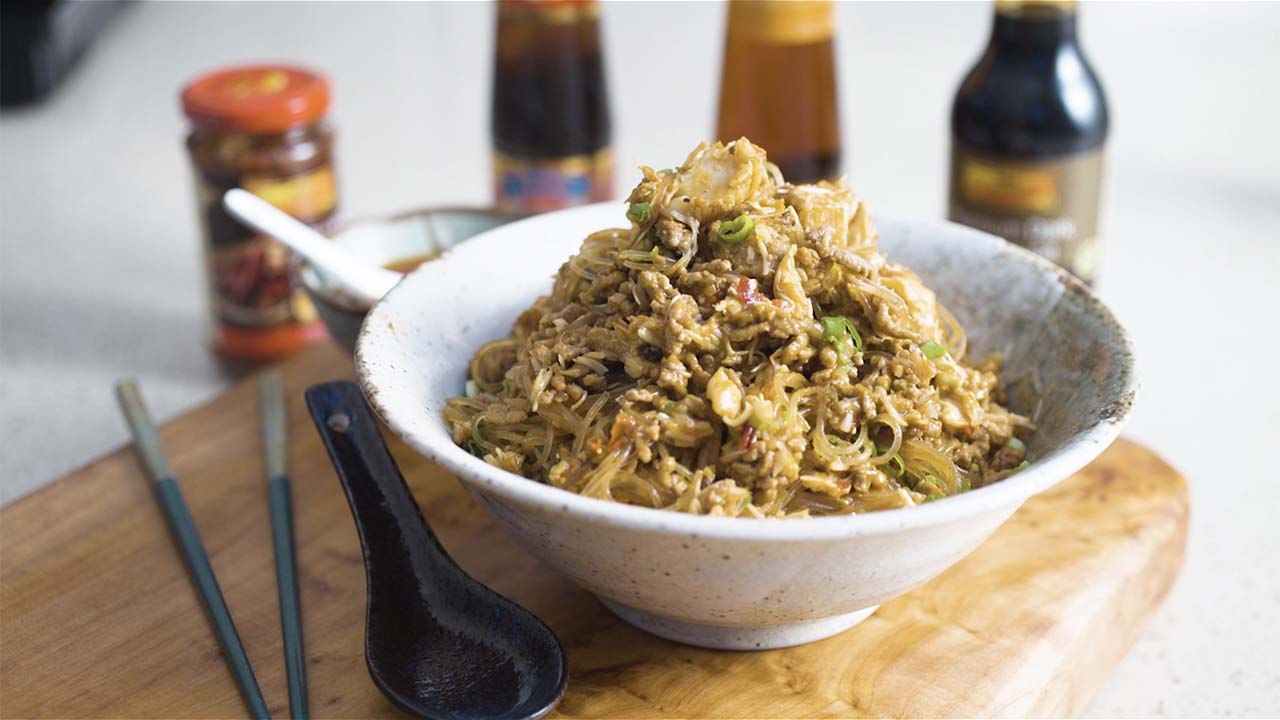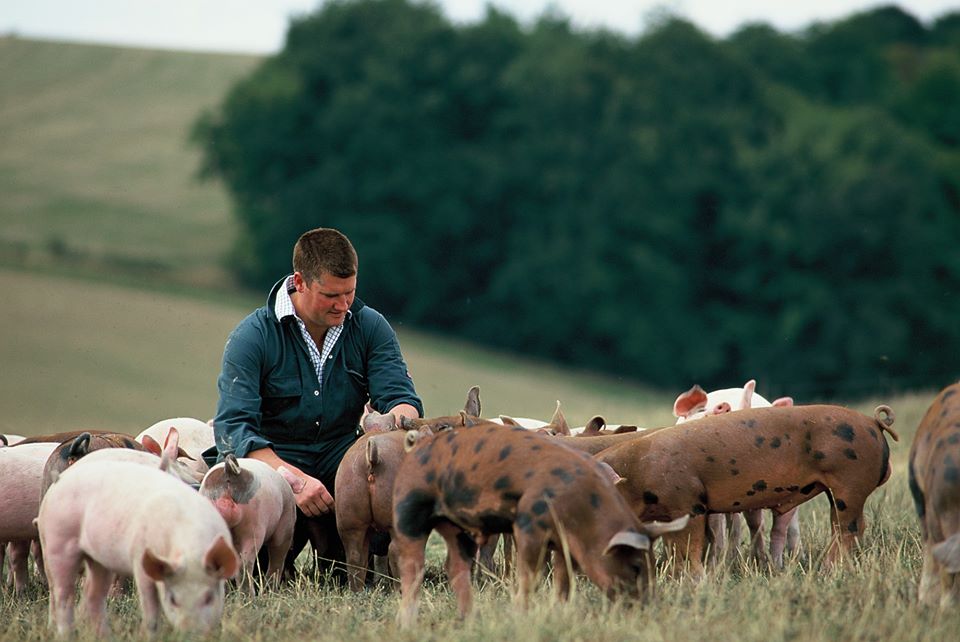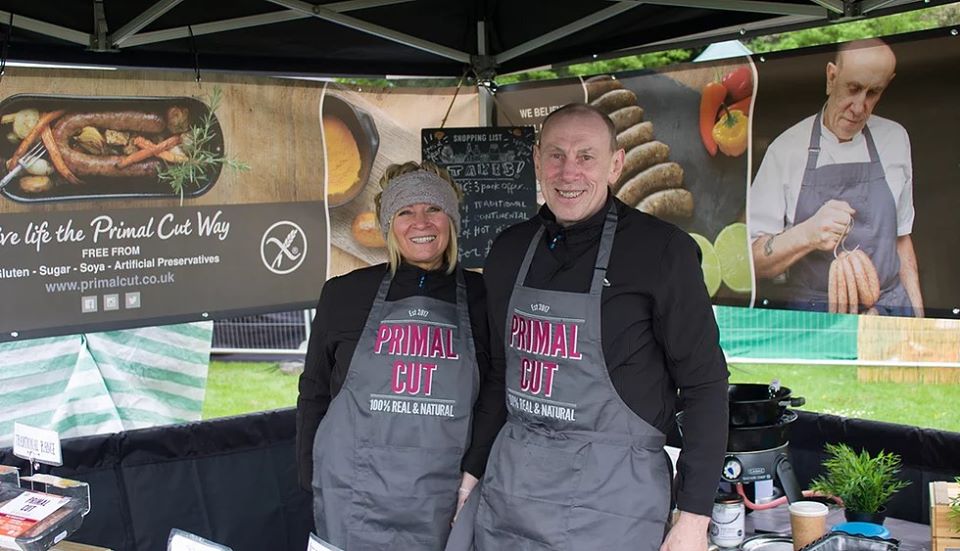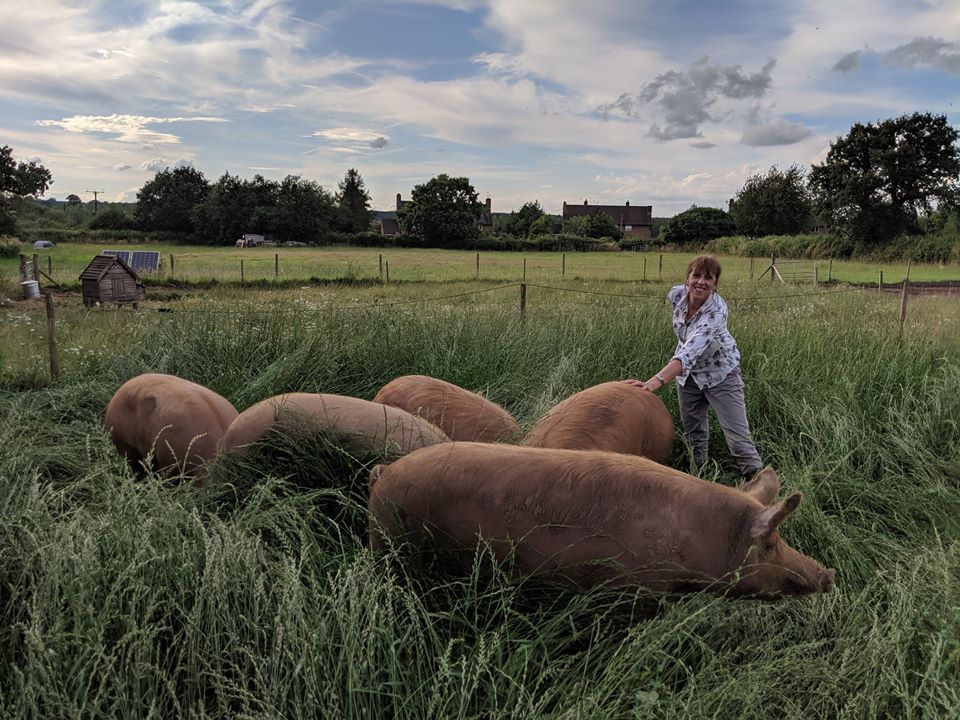We each approach life with a vastly different set of ideas, beliefs, concerns and expectations which guide our decisions. Respecting such differences in opinion is important in all walks of life, but I think it is particularly important when it comes to nutrition. What is right for one person may be wholly wrong for another. I am, therefore, a strong advocate and supporter of personal choice – and this is especially true when it comes to considering the choice between whether or not you eat meat or other animal products.
There are many reasons why you may decide that you’d prefer to stick to a pescatarian, vegetarian or even vegan diet – and with careful planning, it is certainly possible to eat a well-balanced diet without any animal protein. If, however, like me you do choose to eat meat, I think it is well worth spending a little time considering how you buy it, where it comes from and what the conditions were like for the animals involved. By doing so, you will not only help to bring mindfulness to your own nutrition, but you will also be able to make more conscious consumer choices – both for animal welfare and sustainability reasons (hopefully encouraging retailers to follow suit). It’s a win-win situation.
The tidily packaged meat we buy in supermarkets now is so far removed from its origin, it is easy to forget that it came from a living being at all. Picking up a packet of chicken breasts is no more challenging than picking up a bag of apples. This disconnect from the reality of meat production can lull us into a false sense of security, where we are not prompted to ask the questions that challenge unkind or unsustainable production methods. Retailers have made it easy to be unaware of the truth behind the meat we buy.
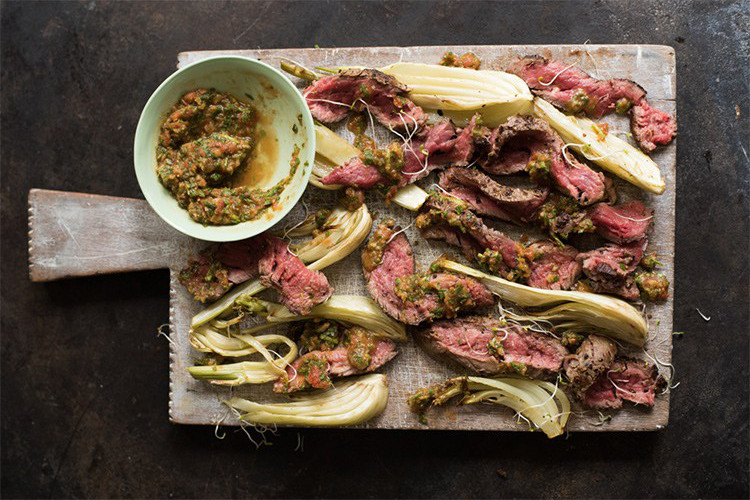
It is not all bad news though: there are some great initiatives afoot to lobby retailers and policy makers to mandate higher meat production standards, and at-a-glance logos on packaging (such as The Soil Association Organic or ‘Freedom Food’ / ‘RSPCA approved’ logos) to help us make quick and easy choices. Finding a brand or retailer you trust is key here. Few of us have the time to investigate every meat purchase in detail, but if you know your local farm shop or butchers only stocks high-quality meat, then the decisions become simpler. Yes, it may be a little more expensive, but in most cases, I sincerely believe that this higher price just reflects the true cost of ethical meat production. Cheap meat is, sadly, often cheap for a reason.
Tip: Old-fashioned cookery books (particularly those from the war years) are absolutely jam-packed full of ways to stretch out a single piece of meat over multiple meals. Keep your eyes peeled in charity shops!
And from a nutrition perspective, there are lots of benefits of eating unprocessed, high-quality free-range and/or grass-fed meat rather than cheap, processed, intensively farmed alternatives. For more information on this, please check out my blog post ‘Is Organic Food Worth It?”.
The questions I ask myself when sourcing and buying meat
- Firstly, I ask myself – do I feel like eating meat today? Personally, I elect to eat red meat only once or twice a week (for cost, health and sustainability reasons), so I’ll often choose chicken or fish instead, or I’lI substitute these for good quality plant or dairy protein sources (I’m a great supporter of Meat-Free Monday). In all aspects of food sourcing and shopping, I aim to be a mindful, conscious consumer, so when buying fish, l’ll take a look at the Marine Stewardship Council to check the sustainability of my fish purchases.
- I buy my meat from the local farm shop or butcher in favour of the supermarkets whenever possible. Quality really does matter, especially with meat: ‘buy less, buy better’ is my motto! Buy the best you can afford and be confident of good welfare conditions. Naturally, if you are able to buy organic meat, then more’s the better: organic farms don’t use fertilisers, pesticides or routine antibiotics and they ensure high levels of animal welfare. However, I do know this can sometimes be difficult as organic meat is not always readily available or its higher cost can present an added challenge to household budgets (especially if feeding a family), so if this is the case, try at least to look for higher-welfare, RSPCA-assured (‘Freedom Foods’), free-range / grass-fed meat where possible and consider using less familiar (less costly) cuts. I ask my supplier if I am not sure.
- Keep in mind that processed, salted or cured meats are OK occasionally, but I will stay way from unprocessed meats for the most part, choosing to eat it only very occasionally.

#TurnYourNoseUp
I’m incredibly proud to be supporting the Farms Not Factories campaign #TurnYourNoseUp
If you’d like some more information on any of the topics discussed above, please take a look at the following websites:
- For an excellent run-down of the scientific evidence on processed meat: examine.com/nutrition/is-processed-meat-bad-for-me/
- Compassion in world farming: ciwf.org.uk
- Understanding food labelling & animal welfare: rspca.org.uk/getinvolved/campaign/foodlabelling
- Does red meat cause cancer? examine.com/nutrition/does-red-meat-cause-cancer/
- Where to buy certified grass-fed meat: pastureforlife.org/where-to-buy/
- For lots of ideas and inspiration for meat-free Mondays: jamieoliver.com/meat-free-monday/#kzwprcmBtGHzqp43.97
- Finding sustainable fish: msc.org/where-to-buy/product-finder
- Meat Free Mondays: meatfreemondays.com/
- Farms not factories: farmsnotfactories.org
Share This Article
Related ArticlesView All
Ching He Huang says #TurnYourNoseUp at Factory Farming
TV chef and food writer Ching He Huang MBE, says #TurnYourNoseUp at factory farming. Her food ethos is to use… Read More
Is Red Tractor High Welfare?
When it comes to buying pork, the Red Tractor label does not offer any assurance that the pigs were raised… Read More
#SaveBritishFarming London March
Yesterday, farmers and activists gathered in London to protest the real prospect of sub-standard imports from the US that would… Read More
Farm Case Study 13: Farmer’s Choice, Hampshire
Jason from Farmer’s Choice Free Range in the South Downs says COVID-19 caused an increased demand that was driven both… Read More
Producer Case Study 12: Primal Cut
Primal Cut are artisan producers that follow Slow Food principles. They promote local food & traditional cooking with free range,… Read More
Farm Case Study 11: Good Life Meat, Staffordshire
Helen Dale & her husband keep rare traditional British breeds of pig at The Good Life Meat Company, which are… Read More
